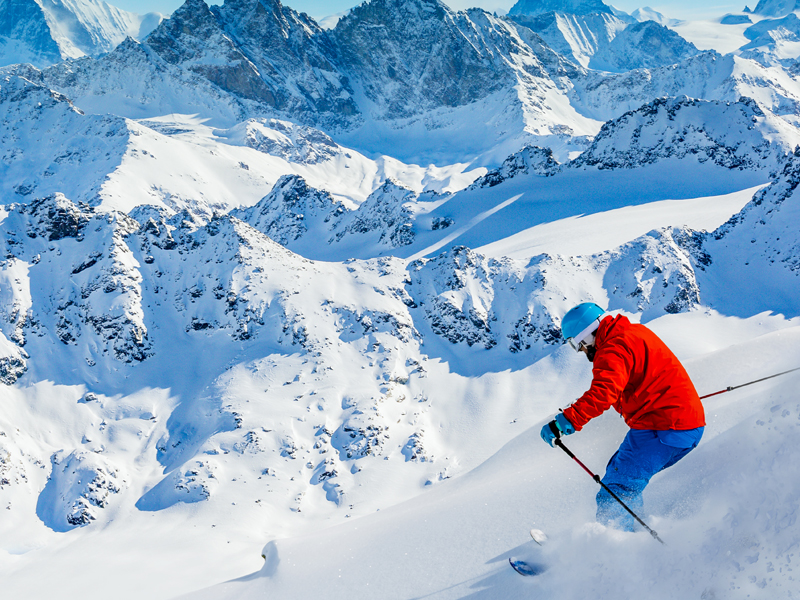All about the skin around the eyes and “drooping” eyelids
04/04/2025

26/03/2018
During this period of the year, many people spend their holidays or weekends practising winter sports, especially skiing or snowboarding. In addition to the protective wear required to practice these activities safely, we mustn't forget that our eyes need proper protection even on cloudy days due to the special solar radiation conditions found in high mountain areas, above all in snowy places. If we do not protect our eyes properly we may suffer from "snow blindness" or actinic keratitis.
Actinic keratitis comes about after a burn on the surface of the eye due to excessive exposure to UV rays. The higher the altitude the more the intensity of UV solar radiation rises, because the Earth's atmosphere provides less filtration. In areas of snowfall, the light reflection factor also plays a part, as it causes a large majority of the UV rays that strike the ground to rebound and they increase the hit to our eyes. That's exactly why on cloudy days —those days when we don't imagine the sun is affecting us— the amount of light reflected off the snow may contribute to increased sun exposure.
The symptoms usually appear hours after a day spent skiing without proper eye protection. We first notice irritation, burning, swelling, excess tears, gradual reddening of the conjunctiva and, finally intense pain that stops us from opening our eyes. These symptoms are caused by a burn and lesion to the epithelial cells of the cornea and conjunctiva, cells that constitute the first and most external layer of the eye's surface. As the cornea is a tissue loaded with nerve endings, the symptoms, especially the pain, can be very intense.
If you experience actinic keratitis you must see an ophthalmologist who will diagnose your condition and give you the correct treatment. Generally speaking, eyedrops for the treatment of the pain and artificial tears or gels/ointments with a healing effect, are prescribed to aid recovery. The epithelial cells have a very quick turnover rate, meaning the condition usually improves quickly within 1 or 2 days. You should avoid using contact lenses for one week after a bout of actinic keratitis.
As prevention is the best way of avoiding diseases, we should always take appropriate protective methods when we head to the snow. Always bring polarised sunglasses with high UV protection lenses and don't forget about protecting your eyes— even on cloudy days! By doing so, you'll avoid suffering an unpleasant bout of "snow blindness".
En verano solemos exponer nuestros ojos a una gran cantidad de riesgos como los rayos nocivos del sol, el contacto con el agua y la práctica de algunos deportes que requieren una protección ocular adecuada. El doctor Andrés Picó te ofrece las pautas para disfrutar de las vacaciones con garantías para tus ojos.